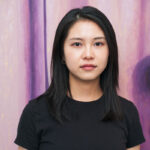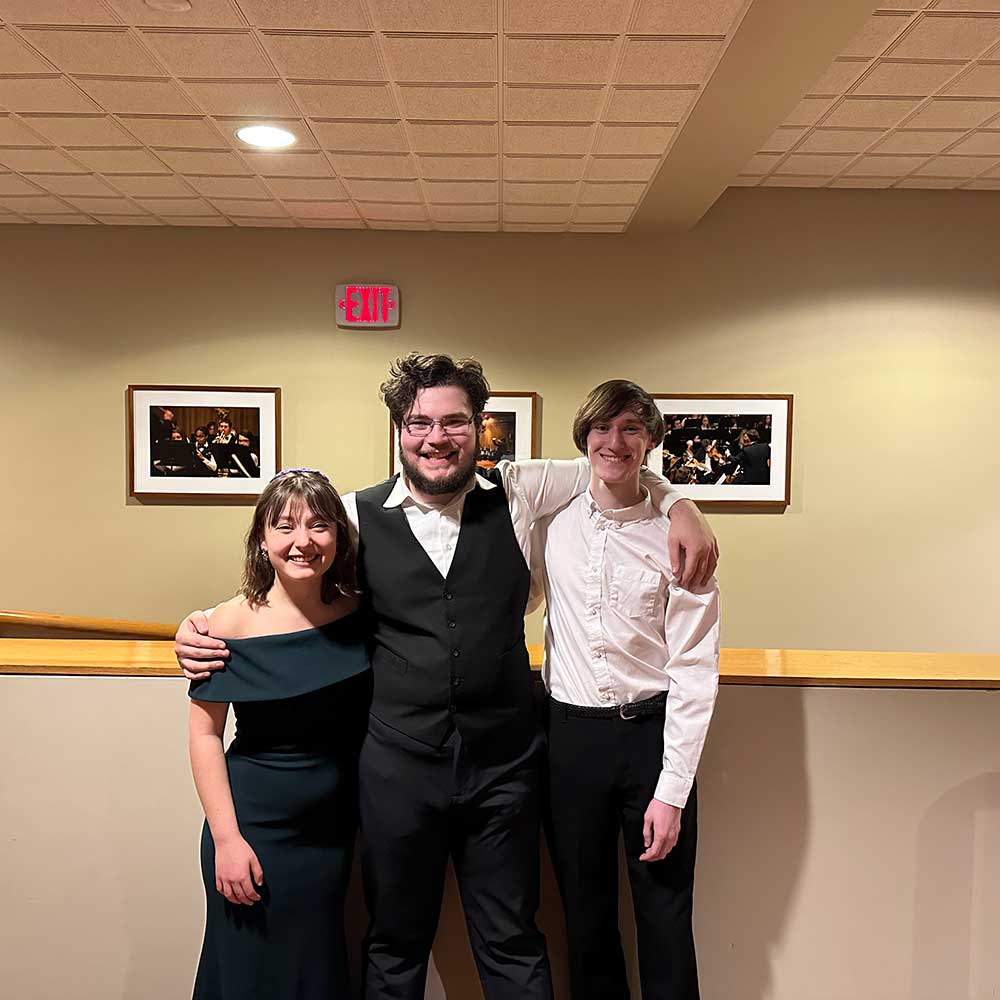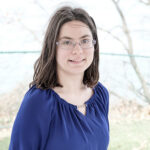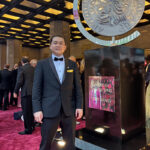
Philosophy and art history double major strengthens his skills through music

Music has been a part of life for as long as Ben Read ’23 can remember. He has been singing since he was a child, and in high school, he was a member of the chorus and active with musical theatre productions. He began composing his own music as a high school senior and even taught himself the piano. When it came time for college, however, he knew he didn’t want to major in music.
“I didn’t want it to become my work in that way,” Read said. “I didn’t want music to lose some of its magic for me.”
Instead, Read arrived at The College of Wooster intending to major in philosophy. He became interested in the subject after reading Classical Philosophy: A History of Philosophy Without Any Gaps by Peter Adamson as a sophomore in high school and began devouring books by Plato, Aristotle, Erasmus, and other philosophers in his spare time. A Chicago native, Read also spent hours exploring the Art Institute of Chicago and attending the museum’s lectures and other events. He later decided to major in art history as well after taking Introduction to Art History as an elective his first year at Wooster and realizing he could double major in his two favorite subjects.
“Philosophy gives me meaning. It helps me make sense of the world,” Read said. “At the same time, it can be an isolating discipline by nature. You’re sitting and reading and thinking about not-always-happy topics. Art history and music are my outlet. They keep me sane and make me happy.”
Music remained an important—and big—part of Read’s life at Wooster. A music minor, he sang as a member of the Wooster Chorus all four years and participated in multiple a cappella groups; performed with the Cleveland Orchestra both as part of the Wooster Chorus and by invitation; and composed original pieces for his junior and senior year recitals. “For every hour of schoolwork, I was doing two hours of music,” he said. “My senior year especially was a very busy year. I was writing a 270-page Independent Study on top of writing an oratorio, on top of applying to grad school. It was fantastic, and I loved it, but it was a lot of work.”
Read became particularly interested in composing while at Wooster. He began taking composition lessons his sophomore year with Peter Mowrey, professor of music, who became both a mentor and a friend. “Ben wrote a prodigious amount of music while he was here, including a 30-minute oratorio, a piano concerto, a song cycle, orchestral music, and numerous chamber pieces,” Mowrey said. “He also gave his own full-length composition recital. In short, he did the equivalent of a senior Independent Study in music composition while simultaneously majoring in two other fields. During his time at Wooster, Ben clearly built on his already astonishing talents by taking on major creative and scholarly projects, dedicating himself tirelessly to them, seeing them through to completion—and doing all of this outstandingly well.”
The freedom and encouragement Read received from faculty and staff at Wooster helped him succeed. “The professors are what makes Wooster really special,” he said. “They’re wonderful people who are extremely generous with their time and talents and always gave me amazing feedback. They didn’t just meet me where I was; they met me where I wanted to be.”
Today, Read is back in Chicago and working toward his master’s degree in modern and contemporary art history at School of the Art Institute of Chicago. He hopes to eventually earn his Ph.D. and become a college professor. He credits his musical experiences with helping him develop a number of important skills and abilities, including professionalism and communication, that will help him succeed in graduate school and in life.
“Music taught me a lot about work,” Read said. “Like many things in life, the thing with music is that you get out of it what you put into it. I put a lot into it, and I got a lot of wonderful experiences out of it. It also taught me time management. I don’t procrastinate because I don’t have time to. If you’re doing a full course load on top of other activities, you have to know how to balance everything or you’re going to be miserable.”
True to form, he still dedicates his spare time to his musical pursuits. He tries to compose for an hour every day and is currently working on a one-act opera. He is also getting involved in the local community by auditioning for some choruses in Chicago.
“I am a big fan of the liberal arts experience,” Read said. “I received a really good education at Wooster. Simultaneously, I think if you ask any student, specifically, any student doing extracurriculars, they’ll say it’s not just about studying at a certain point. Those other experiences allowed them to grow. Without that experience, they wouldn’t be the people they are. I know I wouldn’t be the person I am.”
Featured photo: Read poses with soprano Anya Smith ’24 and pianist Jacob Hankin ’26 following his senior recital.
This article originally appeared in the Spring 2024 edition of Wooster Magazine.
Posted in Alumni, Magazine on March 25, 2024.
Related Posts
Related Areas of Study
Philosophy
Delve into ethical and moral debates while critically analyzing the issues facing humanity
Major MinorMusic
Earn a bachelor of arts in music or a bachelor of music in either music performance or music composition
Major MinorArt - Art History
Explore the cultural and historic significance of art and artists while building research and analytical skills.
Major Minor

